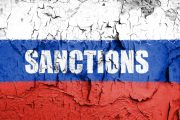Assange is currently under “mansion arrest” at a supporter’s estate outside of London. But he’s happy to be out.
“It’s very nice to be free for Christmas,” he told reporters. “Solitary confinement in the bottom of a Victorian prison is a significant experience. In a way, it’s an experience I’m glad that I’ve had. I’ve never been in prison, but I think it is important for every journalist actually writing about serious matters to be in a prison to understand what it is like for people in prison around the world.”
Assange’s mother was also relieved to see her son freed. “I had faith that the British justice system would do the right thing,” she told reporters outside the court. “And that faith has been confirmed.” The judge said he did not expect Assange to flee, especially since he obviously had an interest in resolving the pending charges.
But while clearing his name is important, Assange said the priority for now would be getting back to business leaking secret U.S. embassy cables. “The highest task I have is to continue on with my work,” he told the press after his release, saying his lawyers would continue fighting the Swedish government on his behalf in the meantime.
In an interview with reporters at his temporary new home, Assange claimed he had not received a single document in English related to the pending case in Sweden. He‘s Australian and does not speak Swedish. He also claimed the Swedish government was trying to hold him “incommunicado” and “gag” his lawyer.
But even more troubling for Assange and his supporters is the possibility of truly serious charges from American prosecutors. “We have also heard today from one of my U.S. lawyers — yet to be confirmed, but a serious matter — that there may be a U.S. indictment for espionage for me coming from a secret U.S. grand jury investigation,” Assange said, speculating that the “strange and unusual” extradition process to Sweden may actually be an attempt to put him in a jurisdiction that would make it “easier” to extradite him to America.
In a separate talk with reporters, Assange also expressed concern about the potential for trouble with U.S. authorities. “I don’t have too many fears about being extradited to Sweden,” he said, referring to the sex-crime allegations. “There are much bigger concerns about being extradited to the U.S.”
So far, spokespeople for the U.S. Department of Justice are only admitting that there is an ongoing investigation. Attorney General Eric Holder acknowledged earlier this week — without offering more details — that he had “authorized significant steps” in the leak investigation.
The House Judiciary Committee also held a hearing about the matter, but it focused mostly on the over-classification of government documents and the possibility of new legislation to deal with leaks without resorting to prosecution under the Espionage Act. One concern is that, if Assange is prosecuted under the act merely for disseminating the information, prosecution of media outlets could soon follow.
But there may be another option. A British newspaper reported Friday that the army intelligence analyst suspected of leaking the U.S. cables, 23-year-old Pfc. Bradley Manning, was offered a plea bargain in exchange for fingering Assange as a co-conspirator. Manning is reportedly being held in solitary confinement, and friends have expressed concern about his physical and mental well being, but he is still refusing to cooperate with investigators.
“Many feel that the Wikileaks publication was offensive,” said Judiciary Committee Chairman John Conyers. “But being unpopular is not a crime and publishing offensive information is not, either. And the repeated calls from politicians, journalists and other so-called experts crying out for criminal prosecutions or other extreme measures make me very uncomfortable.”
Talking heads and “analysts” on both sides of the aisle have called for charges of “treason” (perhaps not realizing Assange is Australian) and even extrajudicial assassination. But at this point, prosecution on lesser charges seems more likely than “treason” or an execution. Any prosecution, however, would create a dangerous precedent, according to free-speech advocates.
One concern repeatedly expressed by analysts is the possibility of the U.S. government using the WikiLeaks embarrassment as an excuse to censor the Internet and crack down on free speech and the press. In a scathing piece about the organization from the Centre for Research on Globalization, Michel Chossudovsky warns against allowing Assange to be prosecuted, despite accusing WikiLeaks of serving as a front for the establishment.
“We must ensure that the campaign against Wikileaks in the U.S., using the 1917 Espionage Act, will not be utilized as a means to wage a campaign to control the internet,” he wrote. “In this regard, we should also stand firm in preventing the prosecution of Julian Assange in the U.S.”
Assange is set to face his extradition-to-Sweden hearing early next year, but what will happen with possible U.S. charges remains to be seen. For now, he is being monitored by British police as he remains under house arrest at a supporter’s estate in England.
There are still hundreds of thousands of documents waiting to be leaked, the organization claims. And Assange has a back-up plan, too, in case he is killed or incarcerated.
A heavily encrypted file — a 1.4 gigabyte behemoth referred to as “The Insurance” — is now in the possession of more than 10,000 people after it was released to the world without the encryption key. A few of Assange’s close associates have the key. Experts have said the plan would be impossible to stop. But if it comes down to it, WikiLeaks says, it will release the encryption key and show the world what is inside.
Photo of Julian Assange: AP Images




